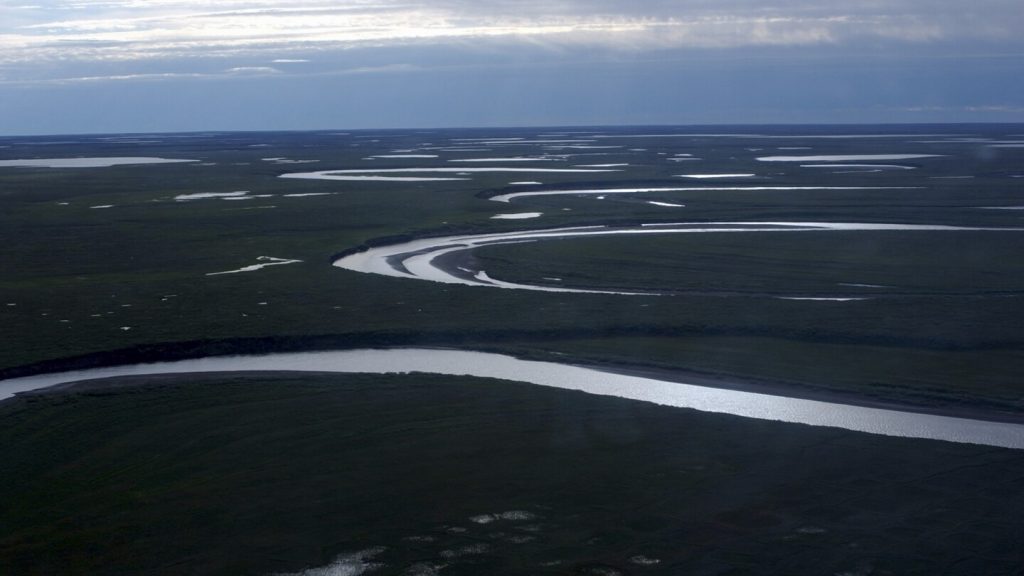The Biden administration has announced restrictions on new oil and gas leasing on 13 million acres of a federal petroleum reserve in Alaska to protect wildlife such as caribou and polar bears as the Arctic continues to warm. This decision, part of a long-standing battle over oil development in the state, follows the approval of the controversial Willow oil project, which drew criticism from environmentalists. The move also finalizes a plan to close nearly half the reserve to oil and gas leasing, prompting backlash from Republican lawmakers such as Alaska Sen. Dan Sullivan.
Despite the restrictions, the Interior Department’s decision does not affect existing leases in the reserve or currently authorized operations, including Willow. In a nod to environmental concerns, the Biden administration also recommended rejecting a state corporation’s application for a proposed 210-mile road to allow mining of critical minerals in the northwest part of the state. Alaska political leaders, including Sullivan, have accused the administration of undermining national security interests with these decisions, limiting the state’s development of oil, gas, minerals, and timber.
President Biden defended the restrictions on the petroleum reserve, citing the importance of protecting Alaska’s lands and waters, especially for Alaska Native communities. However, some groups, like Voice of the Arctic Iñupiat, have been critical of the administration’s approach, citing concerns over the impact on development in the region. The petroleum reserve, located near the Arctic National Wildlife Refuge, is a critical habitat for caribou, polar bears, and migrating birds, and has been the subject of ongoing debate over development priorities.
The new rules announced by the Interior Department place restrictions on future leasing and industrial development in special areas designated for their wildlife and subsistence values. The agency will regularly evaluate whether to designate new special areas or increase protections in existing ones, given the rapidly changing conditions in the Arctic due to climate change. Environmentalists have praised the decision, with groups like Environment America Research & Policy Center and Earthjustice describing it as a crucial step in protecting the environment and combating climate change.
Despite the Biden administration’s efforts to balance environmental concerns with economic interests, the decision to restrict oil and gas leasing in the petroleum reserve continues to be a contentious issue among stakeholders in Alaska. Some political leaders have criticized the administration for what they see as harmful policies that limit the state’s resource development, while others support the move as necessary to protect critical wildlife habitats in the region. The ongoing debate over oil and gas development in Alaska reflects larger tensions between conservation efforts, economic interests, and national security considerations in the era of climate change.


